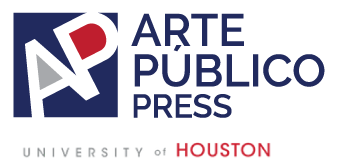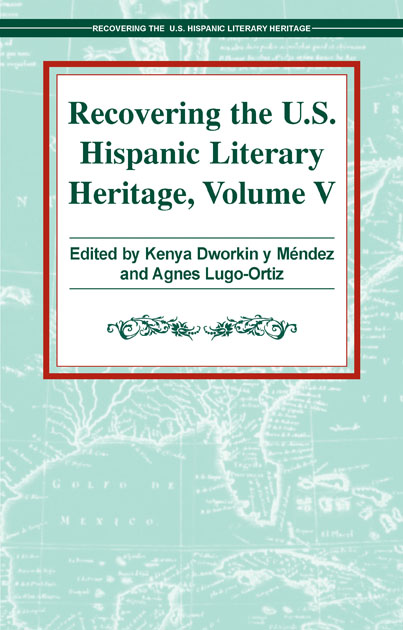Recovering the U.S. Hispanic Literary Heritage, Volume V
$27.95
Edited by Kenya Dworkin y Méndez and Agnes Lugo-Ortiz
ISBN: 978-1-55885-371-3
Publication Date: May 31, 2006
Bind: Clothbound
Pages: 240
Another stimulating collection of essays by leading scholars of U.S. Hispanic Literature.
Look Inside
Available
This volume of essays marks the fifteenth year of archival and critical work conducted under the auspices of the Recovering the U.S. Hispanic Literary Heritage Project at the University of Houston. This ongoing and comprehensive program seeks to locate, identify, preserve, and disseminate the literary contributions of U.S. Latinos from the Spanish Colonial Period to contemporary times.
The contributors explore key issues and challenges in this project, such as the issue of its legitimacy and acceptance in the academic canon, whether the basic archival phase of the Recovery Project is complete, and if the assumption that there is widespread recognition of the existence and vitality of a centuries-long U.S. Hispanic literary tradition may be premature and perhaps imprudent.
Originally presented at the biennial conferences of the Recovery project, the essays are divided in to five sections: “Rethinking Latino/a Subject Positions,” “Negotiating Cultural Authority and the Canon,” “Orality, Performance, and the Archive,” “Re-Contextualizing María Amparo Ruiz de Burton,” and “Bibliographic Reports.” Covering a wide range of topics, essays include “Bending Chicano Identity and Experience in Arturo Isla’s Early Borderland Short Stories,” “Recovering Mexican America in the Classroom,” and “Early New Mexican Criticism: The Case of Breve Reseña de la literatura hispana de Nuevo México y Colorado.”
In their introduction, editors Kenya Dworkin y Méndez and Agnes Lugo-Ortiz give an overview of the editorial framing of the previous volumes in the series and discuss the significant research issues and agendas raised over the past fifteen years. This volume, like the ones that precede it, is bilingual, confirming the cultural politics that have animated the Recovery Project since its inception: the understanding that the U.S. is a complex multicultural and multilingual society.









